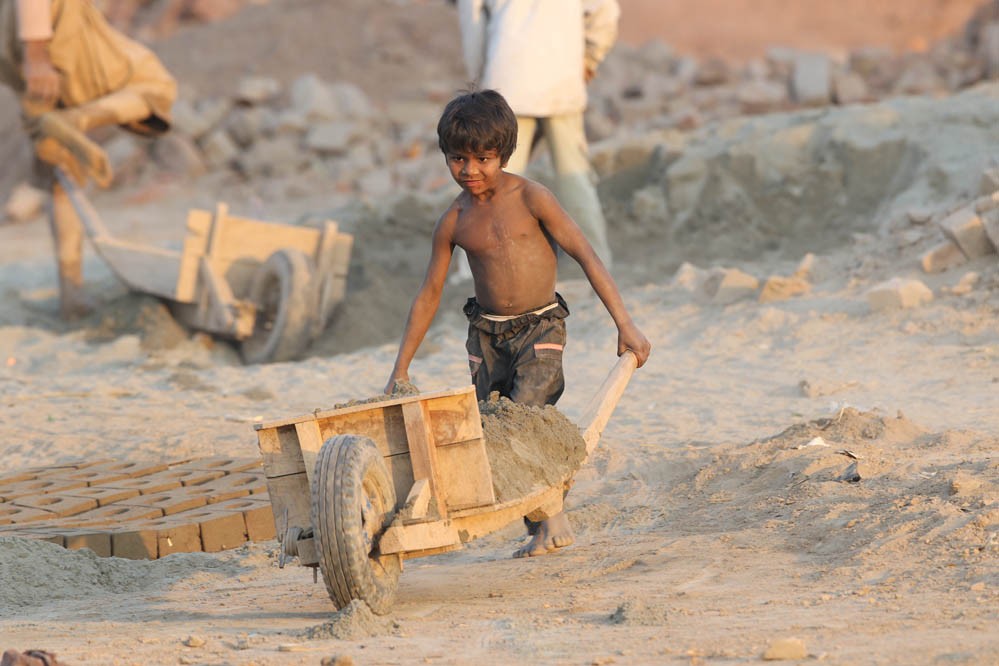
A very sophisticated clamp down on fundamental rights is in progress, say activists

Whatever little we achieved in Pakistan in terms of our fundamental rights especially freedoms of expression and association has been taken away by the state during the last couple of years. These rights had been recognised as a result of a long and hard struggle by heroic individuals and civil society organisations. However, the fundamental rights situation was never ideal in Pakistan. There were certain taboos like state’s treatment of the Ahmadiyya issue, criticism of the inclusion of Objectives Resolution in the Constitution, use of the word pluralistic instead of secular, and persecution of minorities by members of various political parties. The Supreme Court of Pakistan has not addressed the blatant violations of rights.
There is a practical clamp down on fundamental rights. It is growing more sophisticated. There is a kind of unannounced dictatorial regime in power. The current government, in particular, is very intolerant of criticism, vindictive and non- democratic in its attitude.
During the previous dictatorial regimes we were openly told about the restrictions imposed on us. They would announce measures taken by the state authorities, and as a result efforts to negotiate terms could be undertaken. But now there is an unannounced policy of taking away fundamental rights of people.
Civil society organisations in Pakistan started attracting special attention in 1990. These entities, especially non-governmental organisations (NGOs), are allowed to work after getting registered under special laws following a lengthy process. The contributions of NGOs in social development, human rights and poverty alleviation are particularly admired and supported by local and international donors. A conservative estimate shows that more than 5 million families have taken advantage of the microfinance programs. Fifty per cent of the beneficiaries of these programs have been poor women. Over 2 million women became micro entrepreneurs and are supporting their families. Over 1.5 million children, mostly girls, many of whom are out of school, are being provided with quality education through various NGO-led programs. Over 10,000 NGOs currently employ over 500,000 individuals and are at the forefront of creating local job opportunities. The NGOs have been providing over 23 million individuals with access to better maternal and reproductive healthcare services. One can go on and on to explain the role of NGOs, which has positively impacted the lives of millions in Pakistan.
On November 28, 2013, the Economic Coordination Committee (ECC) of the Cabinet Division decided to introduce a Policy for Regulation of Organisations Receiving Foreign Contributions. Under this policy, all NGOs receiving foreign economic funds will need prior registration with the government and sign a Memorandum of Understanding with the Economic Affairs Division (EAD). Through this policy stringent rules have been introduced affecting various aspects of NGOs functioning, especially curbing their right to speak freely on government’s policies and actions.
First of all, one fails to understand why NGOs already registered under special laws need to be registered again with the EAD, and that too, after following a very cumbersome procedure. Fourteen hard copies of an approved project plan have to be provided to the EAD in Islamabad for clearance, which circulates these among different departments and intelligence agencies across all provinces of Pakistan. This takes years. In all this, the role of the EAD is not more than that of a postbox which circulates the approved project and writes back queries to respective NGOs. The NGOs are regularly visited by intelligence agencies with all kinds of questions, and most of the times, the personnel of these agencies ask for the same information. There is absolutely no coordination among these agencies and there is little respect for the NGOs in the eyes of the visiting personnel.
The Ministry of Interior has come up with a four-page questionnaire which seeks information regarding the voluntary board members of the NGO, key staff members, their religion, castes, information about their family members, list of bank accounts, and details of international travel. The most surprising set of questions relate to a section in which NGOs are asked to respond to questions such as: do you have a membership of any jihadi organisation? How many jihadi trainings have you received during the last two years? The situation becomes more complicated when there is a mention of the National Action Plan.
Also read: The cost of being a woman
How can one expect the development organisations to work whole-heartedly for the downtrodden when most of their time is wasted in responding to the demands of government departments?
There is an urgent need to review this attitude. Civil society organisations feel that their rightful objectives cannot be attained without cooperation and support of the government. We also believe in the supremacy of the Constitution of Pakistan and rule of law. We support the government in all actions that are taken to improve the status and condition of the people of Pakistan without any distinction. However, it is up to each one of us to claim our rights and assert them. Are we ready for it? If not, our reluctance will add to the darkness around us.